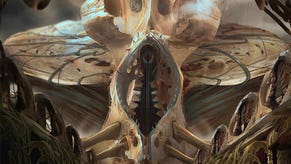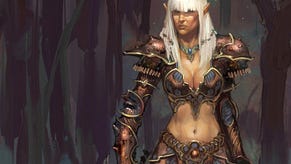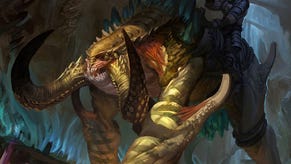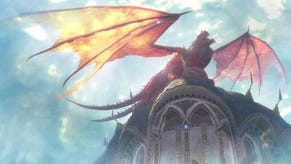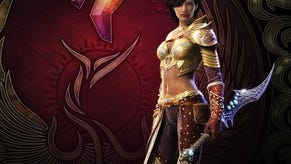Rift
Plane sailing.
We'll never truly escape the kind of player whose definition of teamwork amounts to wiping their own filth across their faces before throwing themselves single-handedly into an insurmountable army of enemies, a lone and pointless suicide agent for the cause. But as a largely objective-driven affair, Rift's Warfronts demand co-operation and an understanding of the team's movement and positioning. In Black Garden, players compete to gain possession of the Fang of Regulos, retaining it in order to accrue points. In The Codex, one node proves particularly advantageous to maintain, granting a greater points bonus.
Playing a tank, I feel empowered to assume a remarkably tank-like position on the battlefield: protecting the team's objective carrier, soaking damage by making an extraordinary nuisance of myself in a group of enemy players, diverting crowd control skills to the direst threats. The pick-and-mix approach to talents allows players to compliment their traditional role with the necessary tools for self-survival, a system that goes beyond the simplistic roles of damage-dealer, meat-shield or healer.
Rift's synergistic approach to game design can also be found in the crafting system, where players can take up to three skills covering the staples: alchemy, weapon-smithing, armour-crafting and the like. With each crafting path tied closely to one or more of the three gathering professions, the game encourages cautious consideration in a balance between profit and self-sufficiency.
If there's a criticism to be levelled at the game, it lies in the questing, an area that betrays a lack of confidence in the evolutionary approach underpinning every other facet of Rift. More Burning Crusade than Wrath of the Lich King, the old-school mentality of genocidal gathering dominates in Rift's world of Telara.
But it does, at least, steer clear of cheating the player through repetition of objectives. If you're an old hand of fantasy MMOs then the system won't offend; it will merely leave you content, if a little uninspired. Certainly, the more patient leveller, with one inquisitive eye on the lore, will find greater satisfaction from this area of the game.
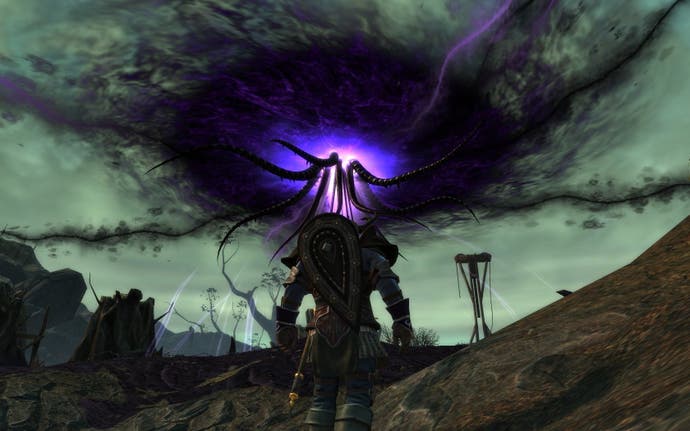
The story's salvation lies in the living stage on which events unfold. Left unopened, the titular rifts bloom and ripple across the landscape like molten glass against Oblivion skies. Once opened, they blossom into a variety of deadly flavours: in one zone, they reveal themselves as conduits for darkness, spilling demonic hordes into the surrounding area. In another, mutated vegetation cascades from the sky.
Sealing these rifts is a multi-stage affair, beginning with clearing some trash before ramping up towards meaner and keener elite bosses. For the most part, these final enemies can be dispatched with the ever-reliable 'tank-and-spank' approach, although variation through Trion's live programming should keep things interesting once players have settled into the pace of this dynamic world.
Rifts aren't just static, random events that pop onto your map to be savoured or ignored. Left unchecked, rifts will ultimately dispatch invasion forces that march across the land towards NPC settlements, transforming the environment in their wake and forcing your quest givers, transportation masters and town merchants into battle. Maybe even into death, serving to add a sense of urgency to the shifting landscape.


